Sunday, April 17–Tuesday, April 19, 2016
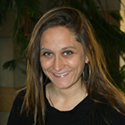 Jaimie Bleck is assistant professor of political science and a Kellogg faculty fellow at the University of Notre Dame. With research interests that include African elections, comparative democratization, and political Islam in West Africa, she is the author of Education and Empowered Citizenship in Mali (Johns Hopkins University Press, 2015). She has consulted for the World Bank, Freedom House, and Care International.
Jaimie Bleck is assistant professor of political science and a Kellogg faculty fellow at the University of Notre Dame. With research interests that include African elections, comparative democratization, and political Islam in West Africa, she is the author of Education and Empowered Citizenship in Mali (Johns Hopkins University Press, 2015). She has consulted for the World Bank, Freedom House, and Care International.
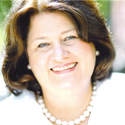 Jennie Weiss Block, OP, a Dominican laywoman and practical theologian, is chief adviser to Paul Farmer and served as his chief of staff in his role as UN Deputy Special Envoy for Haiti. She has overseen the publication of Farmer's recent books including Haiti After the Earthquake (PublicAffairs, 2010), to which she contributed a chapter, and coedited In the Company of the Poor: Conversations with Dr. Paul Farmer and Fr. Gustavo Gutiérrez (Orbis, 2013).
Jennie Weiss Block, OP, a Dominican laywoman and practical theologian, is chief adviser to Paul Farmer and served as his chief of staff in his role as UN Deputy Special Envoy for Haiti. She has overseen the publication of Farmer's recent books including Haiti After the Earthquake (PublicAffairs, 2010), to which she contributed a chapter, and coedited In the Company of the Poor: Conversations with Dr. Paul Farmer and Fr. Gustavo Gutiérrez (Orbis, 2013).

Matt Bloom, a Kellogg faculty fellow, is associate professor of management at the University of Notre Dame. With research interests that include innovation, creativity, and employee motivation and engagement, he is principal investigator for the Wellbeing at Work Project. Funded by the Lilly Foundation and the Templeton Religion Trust, the multi-year project investigates wellbeing in the caring professions with the aim of discovering what makes work a positive, happy, and enlivening experience.
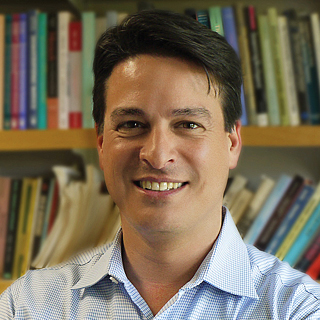
Paolo Carozza is director of the Kellogg Institute for International Studies, professor of law, and concurrent professor of political science at the University of Notre Dame. He leads the Kellogg Institute’s multidisciplinary research initiative investigating the role of human dignity in the practice of international development. Having served as member and president of the Inter-American Commission on Human Rights, Carozza’s research centers on comparative constitutional law, human rights law, the role of law in development, and international law.
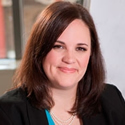 Meghan Clark is assistant professor of theology and religious studies at St. John’s University. A social ethicist, she specializes in global health, economic development, and Catholic moral theology. The author of The Vision of Catholic Social Thought: The Virtue of Solidarity and the Praxis of Human Rights (Fortress Press, 2014), she received a Fulbright Scholarship for research at the Hekima Institute for Peace Studies and International Relations in Nairobi, Kenya in fall 2015.
Meghan Clark is assistant professor of theology and religious studies at St. John’s University. A social ethicist, she specializes in global health, economic development, and Catholic moral theology. The author of The Vision of Catholic Social Thought: The Virtue of Solidarity and the Praxis of Human Rights (Fortress Press, 2014), she received a Fulbright Scholarship for research at the Hekima Institute for Peace Studies and International Relations in Nairobi, Kenya in fall 2015.
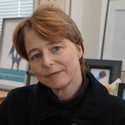 Ophelia Dahl, cofounder of Partners In Health (PIH), has been advocating for the health and rights of poor people since, as a volunteer in rural Haiti in 1983, she met and joined forces with Paul Farmer. PIH executive director from 2001 to 2015, she has served as chair of the PIH board since 2000. Dahl is also chairman of Dahl & Dahl LLP, which manages the literary estate of her late father, the writer Roald Dahl.
Ophelia Dahl, cofounder of Partners In Health (PIH), has been advocating for the health and rights of poor people since, as a volunteer in rural Haiti in 1983, she met and joined forces with Paul Farmer. PIH executive director from 2001 to 2015, she has served as chair of the PIH board since 2000. Dahl is also chairman of Dahl & Dahl LLP, which manages the literary estate of her late father, the writer Roald Dahl.
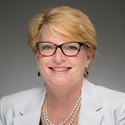 Marie Donahue is director of the Notre Dame Haiti Program and associate professional specialist in the Department of Biological Sciences, University of Notre Dame. A pediatric nurse practitioner, she has worked in global health in Africa for over eleven years, developing programs to prevent mother-to-child transmission of HIV and facilitate pediatric HIV care. She worked also with Partners In Health as a clinician for the Ebola response in Sierra Leone.
Marie Donahue is director of the Notre Dame Haiti Program and associate professional specialist in the Department of Biological Sciences, University of Notre Dame. A pediatric nurse practitioner, she has worked in global health in Africa for over eleven years, developing programs to prevent mother-to-child transmission of HIV and facilitate pediatric HIV care. She worked also with Partners In Health as a clinician for the Ebola response in Sierra Leone.
Rev. Robert Dowd, CSC, a Kellogg faculty fellow, is the director of the Institute’s Ford Family Program in Human Development Studies and Solidarity and assistant professor of political science at the University of Notre Dame. An Africanist, he studies the link between public health, good governance, and democratic politics in East Africa. He is the author of Christianity, Islam, and Liberal Democracy: Lessons from Sub-Saharan Africa (Oxford University Press, 2015).
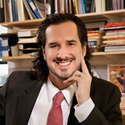 Peter Drobac is executive director of the University of Global Health Equity, a newly established health sciences university in Rwanda. The former executive director of Partners In Health in Rwanda, Drobac specializes in infectious diseases and the design and implementation of comprehensive health systems in resource-limited settings. Currently, he is associate physician at Brigham and Women’s Hospital and instructor of medicine at Harvard Medical School.
Peter Drobac is executive director of the University of Global Health Equity, a newly established health sciences university in Rwanda. The former executive director of Partners In Health in Rwanda, Drobac specializes in infectious diseases and the design and implementation of comprehensive health systems in resource-limited settings. Currently, he is associate physician at Brigham and Women’s Hospital and instructor of medicine at Harvard Medical School.
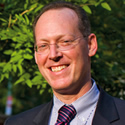 Paul Farmer, physician and anthropologist, is chief strategist and cofounder of Partners In Health, Kolokotrones University Professor and chair of the Department of Global Health and Social Medicine at Harvard Medical School, and chief of the Division of Global Health Equity at Boston’s Brigham and Women’s Hospital. He also serves as UN special adviser to the secretary general on community-based medicine and lessons from Haiti. He has written extensively on health, human rights, and the consequences of social inequality.
Paul Farmer, physician and anthropologist, is chief strategist and cofounder of Partners In Health, Kolokotrones University Professor and chair of the Department of Global Health and Social Medicine at Harvard Medical School, and chief of the Division of Global Health Equity at Boston’s Brigham and Women’s Hospital. He also serves as UN special adviser to the secretary general on community-based medicine and lessons from Haiti. He has written extensively on health, human rights, and the consequences of social inequality.
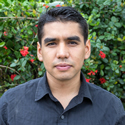 Hugo E. Flores Navarro is the founder and director of Compañeros En Salud (CES)/Partners In Health Mexico as well as an associate physician in the Division of Global Health Equity at Brigham and Women’s Hospital and an instructor of medicine at Harvard Medical School. Since 2010, he has overseen CES efforts to build a primary health care model of excellence in rural Chiapas. Through an accompaniment model, the organization is revitalizing rural clinics and providing comprehensive primary care to over 20,000 patients.
Hugo E. Flores Navarro is the founder and director of Compañeros En Salud (CES)/Partners In Health Mexico as well as an associate physician in the Division of Global Health Equity at Brigham and Women’s Hospital and an instructor of medicine at Harvard Medical School. Since 2010, he has overseen CES efforts to build a primary health care model of excellence in rural Chiapas. Through an accompaniment model, the organization is revitalizing rural clinics and providing comprehensive primary care to over 20,000 patients.
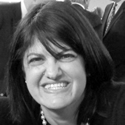 Abbey Gardner is a senior adviser to Paul Farmer at the Aid Delivery Support Initiative and previously advised Farmer at the UN Office of the Special Envoy for Haiti. She has served as executive director of the Baltic-American Partnership Fund, regional director for the Soros Foundation’s programs in Russia, deputy director of the International Science Foundation, and Baltic country director for the Civic Education Project. She is a coeditor of Farmer’s Haiti After the Earthquake (PublicAffairs, 2010).
Abbey Gardner is a senior adviser to Paul Farmer at the Aid Delivery Support Initiative and previously advised Farmer at the UN Office of the Special Envoy for Haiti. She has served as executive director of the Baltic-American Partnership Fund, regional director for the Soros Foundation’s programs in Russia, deputy director of the International Science Foundation, and Baltic country director for the Civic Education Project. She is a coeditor of Farmer’s Haiti After the Earthquake (PublicAffairs, 2010).
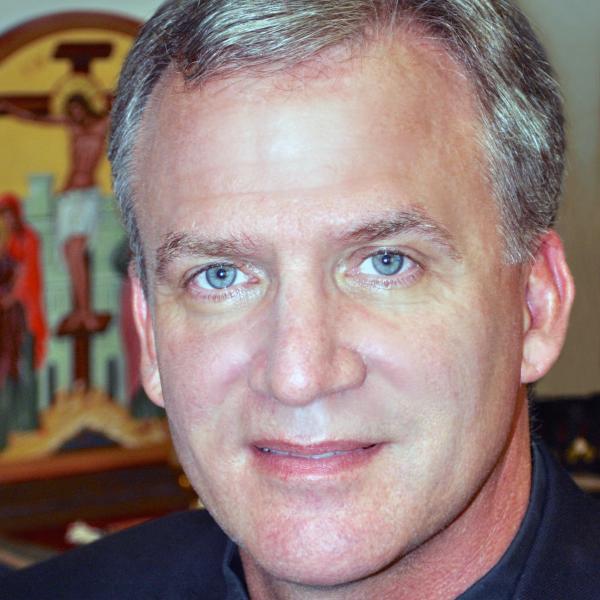 Rev. Daniel Groody, CSC, a Kellogg faculty fellow, is director of Immigration Initiatives at the Institute for Latino Studies and associate professor of theology at the University of Notre Dame. Drawing on his work in Latin America, particularly along the U.S.-Mexico border, he has published various books and articles on migration, refugees, human trafficking, and globalization. He recently coedited The Preferential Option for the Poor beyond Theology (University of Notre Dame Press, 2013) with Rev. Gustavo Gutiérrez, OP.
Rev. Daniel Groody, CSC, a Kellogg faculty fellow, is director of Immigration Initiatives at the Institute for Latino Studies and associate professor of theology at the University of Notre Dame. Drawing on his work in Latin America, particularly along the U.S.-Mexico border, he has published various books and articles on migration, refugees, human trafficking, and globalization. He recently coedited The Preferential Option for the Poor beyond Theology (University of Notre Dame Press, 2013) with Rev. Gustavo Gutiérrez, OP.
 Deirdre Guthrie is a senior research scientist with the Wellbeing at Work Program, a multiyear project investigating wellbeing in the caring professions with the aim of discovering what makes work an enriching experience. A medical anthropologist and ethnographer, Guthrie designed and implemented a participatory research methodology for Rush University Medical Center's "ALIVE" project in partnership with five African-American Baptist churches across Chicago. She has been working with Compañeros En Salud since October 2015.
Deirdre Guthrie is a senior research scientist with the Wellbeing at Work Program, a multiyear project investigating wellbeing in the caring professions with the aim of discovering what makes work an enriching experience. A medical anthropologist and ethnographer, Guthrie designed and implemented a participatory research methodology for Rush University Medical Center's "ALIVE" project in partnership with five African-American Baptist churches across Chicago. She has been working with Compañeros En Salud since October 2015.
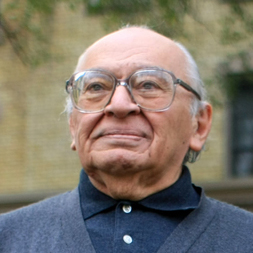 Rev. Gustavo Gutiérrez, OP, is the John Cardinal O’Hara Professor of Theology and a Kellogg faculty fellow at the University of Notre Dame. A native of Peru, he is recognized as one of the founders of liberation theology. His ongoing research considers the historical background and theological relevance of the preferential option for the poor. His public dialogue with Paul Farmer in 2011 is the subject of In the Company of the Poor: Conversations with Dr. Paul Farmer and Fr. Gustavo Gutiérrez (Orbis, 2013).
Rev. Gustavo Gutiérrez, OP, is the John Cardinal O’Hara Professor of Theology and a Kellogg faculty fellow at the University of Notre Dame. A native of Peru, he is recognized as one of the founders of liberation theology. His ongoing research considers the historical background and theological relevance of the preferential option for the poor. His public dialogue with Paul Farmer in 2011 is the subject of In the Company of the Poor: Conversations with Dr. Paul Farmer and Fr. Gustavo Gutiérrez (Orbis, 2013).
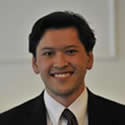 Matthew Hing is a Kellogg Institute International Development Fellow, serving with Compañeros En Salud (CES) in Chiapas, Mexico. He assists CES with the acompañante program, which aims to improve health outcomes among people living with chronic disease by training community members to accompany patients in their ongoing care. A 2015 graduate of the University of Notre Dame, Hing studied Spanish and pre-medicine with a minor in peace studies.
Matthew Hing is a Kellogg Institute International Development Fellow, serving with Compañeros En Salud (CES) in Chiapas, Mexico. He assists CES with the acompañante program, which aims to improve health outcomes among people living with chronic disease by training community members to accompany patients in their ongoing care. A 2015 graduate of the University of Notre Dame, Hing studied Spanish and pre-medicine with a minor in peace studies.
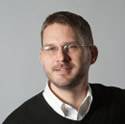 Jacob Hughes is the founder and CEO of Hughes Development, Inc. (HDI), an international consulting firm focused on the design, management, and evaluation of development programs. His more than 15 years of field experience, especially in Africa, has included work on development financing in fragile states and research on aid effectiveness. He has advised senior decision-makers on aid policy and practice in countries such as Liberia and is currently advising major development projects in South Sudan.
Jacob Hughes is the founder and CEO of Hughes Development, Inc. (HDI), an international consulting firm focused on the design, management, and evaluation of development programs. His more than 15 years of field experience, especially in Africa, has included work on development financing in fragile states and research on aid effectiveness. He has advised senior decision-makers on aid policy and practice in countries such as Liberia and is currently advising major development projects in South Sudan.
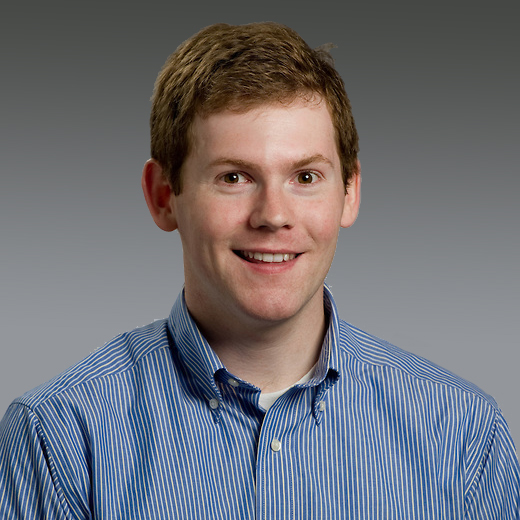 Terence Johnson is assistant professor of economics and a Kellogg faculty fellow at the University of Notre Dame. With interest in the informational and institutional inefficiencies of developing markets, Johnson’s present research investigates means for improving the market efficiency of sanitation services in Burkina Faso and Ghana. In an ongoing Kellogg-supported research project with Wyatt Brooks and Kevin Donovan, “Entrepreneurship in Kenya: Can Experience Be Taught?” he considers the impact of mentorship on entrepreneurial activity in Dandora, Kenya.
Terence Johnson is assistant professor of economics and a Kellogg faculty fellow at the University of Notre Dame. With interest in the informational and institutional inefficiencies of developing markets, Johnson’s present research investigates means for improving the market efficiency of sanitation services in Burkina Faso and Ghana. In an ongoing Kellogg-supported research project with Wyatt Brooks and Kevin Donovan, “Entrepreneurship in Kenya: Can Experience Be Taught?” he considers the impact of mentorship on entrepreneurial activity in Dandora, Kenya.
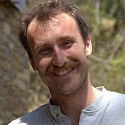 Gregory Karelas, a medical student at the College of Physicians and Surgeons, Columbia University, has worked to strengthen primary health care systems across Rwanda. Formerly, he served as country director for Nyaya Health, an organization based in Achham, Nepal, dedicated to rebuilding the public health system in collaboration with the local government by providing essential primary care, training local health care workers, and constructing the healthcare infrastructure.
Gregory Karelas, a medical student at the College of Physicians and Surgeons, Columbia University, has worked to strengthen primary health care systems across Rwanda. Formerly, he served as country director for Nyaya Health, an organization based in Achham, Nepal, dedicated to rebuilding the public health system in collaboration with the local government by providing essential primary care, training local health care workers, and constructing the healthcare infrastructure.
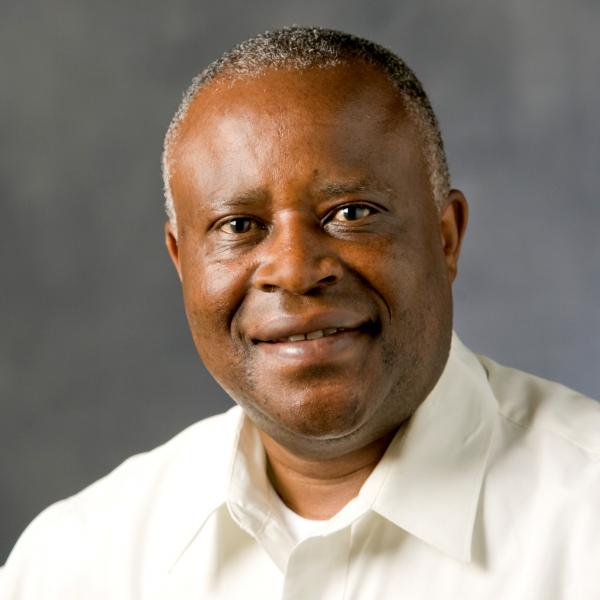 Rev. Emmanuel Katongole is associate professor of theology and peace studies and a Kellogg faculty fellow at the University of Notre Dame. A Catholic priest ordained by the Archdiocese of Kampala, his research interests include politics and violence in Africa, the theology of reconciliation, Catholicism in the global South, and strategic peacebuilding. His most recent book is The Sacrifice of Africa: A Political Theology for Africa (Eerdmans, 2010).
Rev. Emmanuel Katongole is associate professor of theology and peace studies and a Kellogg faculty fellow at the University of Notre Dame. A Catholic priest ordained by the Archdiocese of Kampala, his research interests include politics and violence in Africa, the theology of reconciliation, Catholicism in the global South, and strategic peacebuilding. His most recent book is The Sacrifice of Africa: A Political Theology for Africa (Eerdmans, 2010).
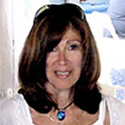 Arlene M. Katz is a lecturer in in the Department of Global Health and Social Medicine at Harvard Medical School and teaches crosscultural care in the residency program, Department of Medicine, Cambridge Health Alliance. Her research focuses on relationship-centered, collaborative methods of care, research, and training. With interests in the moral dimensions of care, social suffering, and accompaniment, and in incorporating community voices into care, research, and environment, she also consults on dialogic processes for organizations, healthcare, and therapy.
Arlene M. Katz is a lecturer in in the Department of Global Health and Social Medicine at Harvard Medical School and teaches crosscultural care in the residency program, Department of Medicine, Cambridge Health Alliance. Her research focuses on relationship-centered, collaborative methods of care, research, and training. With interests in the moral dimensions of care, social suffering, and accompaniment, and in incorporating community voices into care, research, and environment, she also consults on dialogic processes for organizations, healthcare, and therapy.
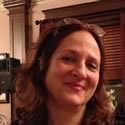 Lisa Kaufman is a freelance editor and marketing consultant who served as marketing director and senior editor for PublicAffairs press for 17 years. Books she has acquired and/or edited include Paul Farmer’s Haiti After the Earthquake (2010), The First 1,000 Days: A Crucial Time for Mothers and Children—and the World (forthcoming, 2016) by Roger Thurow, The American Health Care Paradox: Why Spending More is Getting Us Less (2013) by Elizabeth H. Bradley and Lauren A. Taylor, and the New York Times bestseller What Happened (2008) by Scott McClellan.
Lisa Kaufman is a freelance editor and marketing consultant who served as marketing director and senior editor for PublicAffairs press for 17 years. Books she has acquired and/or edited include Paul Farmer’s Haiti After the Earthquake (2010), The First 1,000 Days: A Crucial Time for Mothers and Children—and the World (forthcoming, 2016) by Roger Thurow, The American Health Care Paradox: Why Spending More is Getting Us Less (2013) by Elizabeth H. Bradley and Lauren A. Taylor, and the New York Times bestseller What Happened (2008) by Scott McClellan.
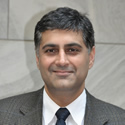 Salmaan Keshavjee is director of Harvard Medical School Center for Global Health Delivery-Dubai, associate professor of global health and social medicine, and a physician in the Division of Global Health Equity at Brigham and Women’s Hospital. With Partners In Health, he has helped implement a multidrug-resistant tuberculosis (MDR-TB) treatment program in Tomsk, Russia and also set up a similar program in Lesotho. He is a founder of Advance Access and Delivery, an NGO committed to advancing equitable access to health care.
Salmaan Keshavjee is director of Harvard Medical School Center for Global Health Delivery-Dubai, associate professor of global health and social medicine, and a physician in the Division of Global Health Equity at Brigham and Women’s Hospital. With Partners In Health, he has helped implement a multidrug-resistant tuberculosis (MDR-TB) treatment program in Tomsk, Russia and also set up a similar program in Lesotho. He is a founder of Advance Access and Delivery, an NGO committed to advancing equitable access to health care.
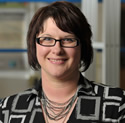 Tracy Kijewski-Correa, a Kellogg faculty fellow, is the Leo E. and Patti Ruth Linbeck Associate Professor of Engineering at the University of Notre Dame. Her research addresses civil infrastructure challenges in the developed and developing world and natural hazard assessment and mitigation. A cofounder of Engineering2Empower (E2E), Kijewski-Correa and E2E colleagues have developed a comprehensive strategy for sustainable housing in Haiti, integrating community-led innovation and market-based solutions.
Tracy Kijewski-Correa, a Kellogg faculty fellow, is the Leo E. and Patti Ruth Linbeck Associate Professor of Engineering at the University of Notre Dame. Her research addresses civil infrastructure challenges in the developed and developing world and natural hazard assessment and mitigation. A cofounder of Engineering2Empower (E2E), Kijewski-Correa and E2E colleagues have developed a comprehensive strategy for sustainable housing in Haiti, integrating community-led innovation and market-based solutions.
 Katherine Kralievits is research assistant to Dr. Paul Farmer and a research intern at the Harvard Medical School Program in Global Surgery and Social Change. With a master of science in global health from the University of Notre Dame, she previously worked in Lusaka, Zambia, with Catholic Relief Services on the Health Systems Strengthening Initiative.
Katherine Kralievits is research assistant to Dr. Paul Farmer and a research intern at the Harvard Medical School Program in Global Surgery and Social Change. With a master of science in global health from the University of Notre Dame, she previously worked in Lusaka, Zambia, with Catholic Relief Services on the Health Systems Strengthening Initiative.
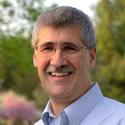 John Paul Lederach, senior adviser for Humanity United and professor of international peacebuilding at the Kroc Institute for International Peace Studies, is widely regarded for his pioneering work in conflict transformation. Involved in conciliation work in Colombia and Nepal, he has helped design and conduct peacebuilding initiatives in 30 countries across five continents. With 24 books, he recently coauthored, with daughter Angie, When Blood and Bones Cry Out: Journeys Through the Soundscape of Healing and Reconciliation (Oxford University Press, 2011).
John Paul Lederach, senior adviser for Humanity United and professor of international peacebuilding at the Kroc Institute for International Peace Studies, is widely regarded for his pioneering work in conflict transformation. Involved in conciliation work in Colombia and Nepal, he has helped design and conduct peacebuilding initiatives in 30 countries across five continents. With 24 books, he recently coauthored, with daughter Angie, When Blood and Bones Cry Out: Journeys Through the Soundscape of Healing and Reconciliation (Oxford University Press, 2011).
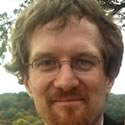 Evan Lyon is assistant professor of medicine at the University of Chicago’s Pritzker School of Medicine. Previously clinical director for Partners In Health’s Right to Health Care program, he is an expert in community-based healthcare and has worked in Haiti and the US on expanding clinical capacity, particularly for cases of infectious diseases such TB and HIV and for the management of chronic illness. He currently practices home-care medicine on the South Side of Chicago.
Evan Lyon is assistant professor of medicine at the University of Chicago’s Pritzker School of Medicine. Previously clinical director for Partners In Health’s Right to Health Care program, he is an expert in community-based healthcare and has worked in Haiti and the US on expanding clinical capacity, particularly for cases of infectious diseases such TB and HIV and for the management of chronic illness. He currently practices home-care medicine on the South Side of Chicago.
 Patrick McCormick is a visiting scholar at the Institute for Educational Initiatives, University of Notre Dame. His current research focuses on how external actors can assist nonviolent resistance campaigns without compromising their legitimacy. He previously served as a member of the research staff of the Council on Foreign Relations where he specialized in human rights and multilateral affairs. He holds degrees from the University of Notre Dame and the University of Oxford.
Patrick McCormick is a visiting scholar at the Institute for Educational Initiatives, University of Notre Dame. His current research focuses on how external actors can assist nonviolent resistance campaigns without compromising their legitimacy. He previously served as a member of the research staff of the Council on Foreign Relations where he specialized in human rights and multilateral affairs. He holds degrees from the University of Notre Dame and the University of Oxford.
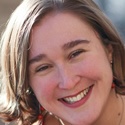 Erin Metz McDonnell, a Kellogg faculty fellow, is Kellogg Assistant Professor of Sociology at the University of Notre Dame. An Africanist, her work focuses on governance, development, state administration, and how social organization affects economic outcomes in African states. Her current research explores the emergence and consequences of effective bureaucratic practice in Ghana.
Erin Metz McDonnell, a Kellogg faculty fellow, is Kellogg Assistant Professor of Sociology at the University of Notre Dame. An Africanist, her work focuses on governance, development, state administration, and how social organization affects economic outcomes in African states. Her current research explores the emergence and consequences of effective bureaucratic practice in Ghana.
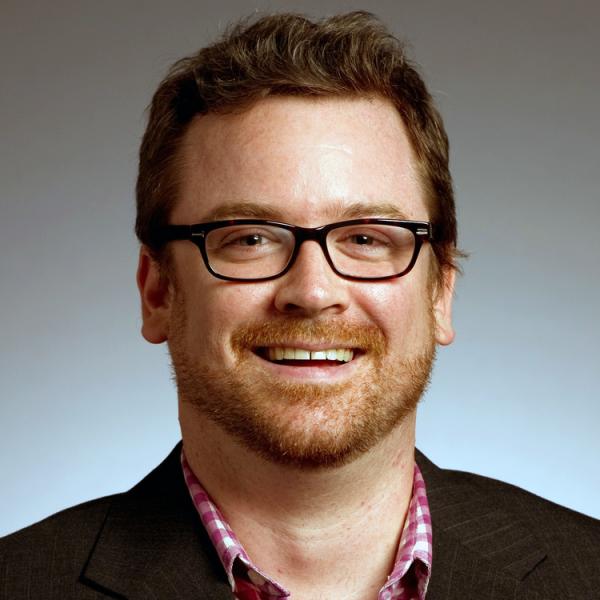 Terence McDonnell, Kellogg Assistant Professor of Sociology, is a Kellogg faculty fellow at the University of Notre Dame. A cultural sociologist with a geographic focus on West Africa, his current research explores why HIV/AIDS media campaigns often fail to change peoples’ beliefs and behaviors. His research interests include culture and media, public health, gender, and social movements.
Terence McDonnell, Kellogg Assistant Professor of Sociology, is a Kellogg faculty fellow at the University of Notre Dame. A cultural sociologist with a geographic focus on West Africa, his current research explores why HIV/AIDS media campaigns often fail to change peoples’ beliefs and behaviors. His research interests include culture and media, public health, gender, and social movements.
 Dustin Mix is director of operations in Haiti for Engineering2Empower (E2E), which promotes community-led innovation and market-based solutions for sustainable housing. With masters degrees in civil engineering and entrepreneurship from the University of Notre Dame, Mix is committed to leveraging engineering, entrepreneurship and innovation for development work in the US and abroad.
Dustin Mix is director of operations in Haiti for Engineering2Empower (E2E), which promotes community-led innovation and market-based solutions for sustainable housing. With masters degrees in civil engineering and entrepreneurship from the University of Notre Dame, Mix is committed to leveraging engineering, entrepreneurship and innovation for development work in the US and abroad.
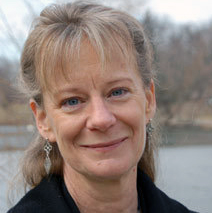 Carolyn Nordstrom is professor of anthropology and a Kellogg faculty fellow at the University of Notre Dame. An expert in the anthropology of war and peace, Nordstrom has authored numerous books and articles on topics that include the illegal drug trade, transnational crime, globalization, and the epicenters of conflict and peacebuilding. Among her recent books is Global Outlaws: Crime, Money and Power in the Contemporary World (University of California Press, 2007).
Carolyn Nordstrom is professor of anthropology and a Kellogg faculty fellow at the University of Notre Dame. An expert in the anthropology of war and peace, Nordstrom has authored numerous books and articles on topics that include the illegal drug trade, transnational crime, globalization, and the epicenters of conflict and peacebuilding. Among her recent books is Global Outlaws: Crime, Money and Power in the Contemporary World (University of California Press, 2007).
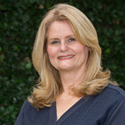 Laurie Nuell, social worker, community activist and philanthropist, is a regional representative and active volunteer with Partners In Health. She is a founding board member of the Friends of Zanmi Beni, a residential children's center in Port-au-Prince, Haiti, and has been instrumental in building and operating a school in LaColline, Haiti. She cofounded the Jay Weiss Center for Social Medicine and Health Equity at the University of Miami Miller School of Medicine.
Laurie Nuell, social worker, community activist and philanthropist, is a regional representative and active volunteer with Partners In Health. She is a founding board member of the Friends of Zanmi Beni, a residential children's center in Port-au-Prince, Haiti, and has been instrumental in building and operating a school in LaColline, Haiti. She cofounded the Jay Weiss Center for Social Medicine and Health Equity at the University of Miami Miller School of Medicine.
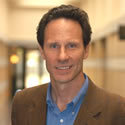 Steve Reifenberg is executive director and associate professor of practice at the Kellogg Institute for International Studies. His teaching and research interests focus on international development and the practice of accompaniment. The author of Santiago’s Children: What I Learned About Life Working at an Orphanage in Chile (University of Texas Press, 2008), he was previously the executive director of Harvard University’s David Rockefeller Center for Latin American Studies. Reifenberg serves on the boards of Partners In Health, WorldTeach, and the Patagonia Sur Foundation.
Steve Reifenberg is executive director and associate professor of practice at the Kellogg Institute for International Studies. His teaching and research interests focus on international development and the practice of accompaniment. The author of Santiago’s Children: What I Learned About Life Working at an Orphanage in Chile (University of Texas Press, 2008), he was previously the executive director of Harvard University’s David Rockefeller Center for Latin American Studies. Reifenberg serves on the boards of Partners In Health, WorldTeach, and the Patagonia Sur Foundation.
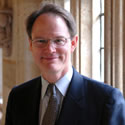 Haun Saussy is professor of comparative literature at the University of Chicago. With appointments in East Asian Languages and Civilizations and the Committee on Social Thought, his research interests include Classical Chinese poetry and commentary, literary theory, and the ethics of medical care. Among his many publications, Saussy edited Partner to the Poor: A Paul Farmer Reader (University of California Press, 2010). He is a former president of the American Comparative Literature Association.
Haun Saussy is professor of comparative literature at the University of Chicago. With appointments in East Asian Languages and Civilizations and the Committee on Social Thought, his research interests include Classical Chinese poetry and commentary, literary theory, and the ethics of medical care. Among his many publications, Saussy edited Partner to the Poor: A Paul Farmer Reader (University of California Press, 2010). He is a former president of the American Comparative Literature Association.
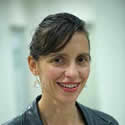 Jéhane Sedky is senior adviser to the United Nations Office of the Secretary-General’s Special Adviser on Community Based Medicine and Lessons from Haiti, led by Paul Farmer. Previously, she was senior adviser and acting head of office in the UN Office of the Special Envoy for Haiti, under the leadership of Farmer and former President Bill Clinton, and served for two years as UN Assistant Secretary General Kathleen Cravero’s chief of staff. She began her UN career as press officer for UNICEF.
Jéhane Sedky is senior adviser to the United Nations Office of the Secretary-General’s Special Adviser on Community Based Medicine and Lessons from Haiti, led by Paul Farmer. Previously, she was senior adviser and acting head of office in the UN Office of the Special Envoy for Haiti, under the leadership of Farmer and former President Bill Clinton, and served for two years as UN Assistant Secretary General Kathleen Cravero’s chief of staff. She began her UN career as press officer for UNICEF.
 Clemens Sedmak is a visiting professor of Catholic Social Tradition and Community Engagement at the Center for Social Concerns and the Keough School of Global Affairs, University of Notre Dame. A native of Austria, he is F.D. Maurice Professor for Moral Theology and Social Theology at King’s College London. He also serves as director of the Center for Ethics and Poverty Research and president of the Institute for Advanced Studies at the University of Salzburg.
Clemens Sedmak is a visiting professor of Catholic Social Tradition and Community Engagement at the Center for Social Concerns and the Keough School of Global Affairs, University of Notre Dame. A native of Austria, he is F.D. Maurice Professor for Moral Theology and Social Theology at King’s College London. He also serves as director of the Center for Ethics and Poverty Research and president of the Institute for Advanced Studies at the University of Salzburg.
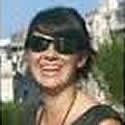 Tracy Slagle is a health policy officer with Partners In Health. Previously, she worked with PIH and Last Mile Health, providing technical assistance to the Liberian Ministry of Health in the areas of community health and health systems strengthening. She also helped design and manage the Incident Management System (IMS), which coordinated the comprehensive Ebola response in Liberia. Slagle has worked for the Earth Institute at Columbia University, the United States Department of Defense, and NASA.
Tracy Slagle is a health policy officer with Partners In Health. Previously, she worked with PIH and Last Mile Health, providing technical assistance to the Liberian Ministry of Health in the areas of community health and health systems strengthening. She also helped design and manage the Incident Management System (IMS), which coordinated the comprehensive Ebola response in Liberia. Slagle has worked for the Earth Institute at Columbia University, the United States Department of Defense, and NASA.
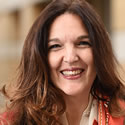 Sara Sievers is the associate dean of policy and practice at the University of Notre Dame’s Keough School of Global Affairs. The founding executive director at Columbia University’s Center for Globalization and Sustainable Development and Harvard University’s Center for Global Development, she has extensive experience in development advocacy, policy, and governance. In addition to working in the Foreign Service and at the Bill and Melinda Gates Foundation, Sievers recently advised the government of Nigeria on implementing the Millennium Development Goals.
Sara Sievers is the associate dean of policy and practice at the University of Notre Dame’s Keough School of Global Affairs. The founding executive director at Columbia University’s Center for Globalization and Sustainable Development and Harvard University’s Center for Global Development, she has extensive experience in development advocacy, policy, and governance. In addition to working in the Foreign Service and at the Bill and Melinda Gates Foundation, Sievers recently advised the government of Nigeria on implementing the Millennium Development Goals.
 Katherine Taylor is director of operations for the University of Notre Dame’s Eck Institute for Global Health, which promotes research, training, and service to advance health standards, especially in low and middle-income countries. Taylor’s primary research interests include entomology, ecology and environmental biology, epidemiology and population biology, and infectious and vector-borne diseases. Previously, she served as chief for the Drug Development Section of the National Institute of Allergy and Infectious Diseases, Office of Biodefense Research Affairs.
Katherine Taylor is director of operations for the University of Notre Dame’s Eck Institute for Global Health, which promotes research, training, and service to advance health standards, especially in low and middle-income countries. Taylor’s primary research interests include entomology, ecology and environmental biology, epidemiology and population biology, and infectious and vector-borne diseases. Previously, she served as chief for the Drug Development Section of the National Institute of Allergy and Infectious Diseases, Office of Biodefense Research Affairs.
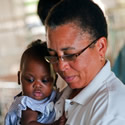 Loune Viaud is the director of strategic planning and operations for Zanmi Lasante, the Partners In Health affiliate in her native Haiti, andoversees medical, educational, and social programs that provide services to people throughout the country. She pioneered Central Haiti’s first women’s health center and was the founding director of Zanmi Beni, a residential children's center in Port-au-Prince. An internationally known human rights activist and advocate for women and children, Viaud won the 2002 Robert F. Kennedy Human Rights Award.
Loune Viaud is the director of strategic planning and operations for Zanmi Lasante, the Partners In Health affiliate in her native Haiti, andoversees medical, educational, and social programs that provide services to people throughout the country. She pioneered Central Haiti’s first women’s health center and was the founding director of Zanmi Beni, a residential children's center in Port-au-Prince. An internationally known human rights activist and advocate for women and children, Viaud won the 2002 Robert F. Kennedy Human Rights Award.





